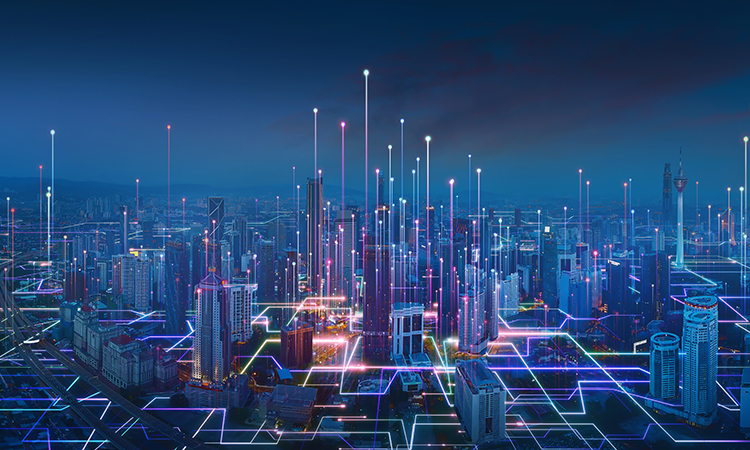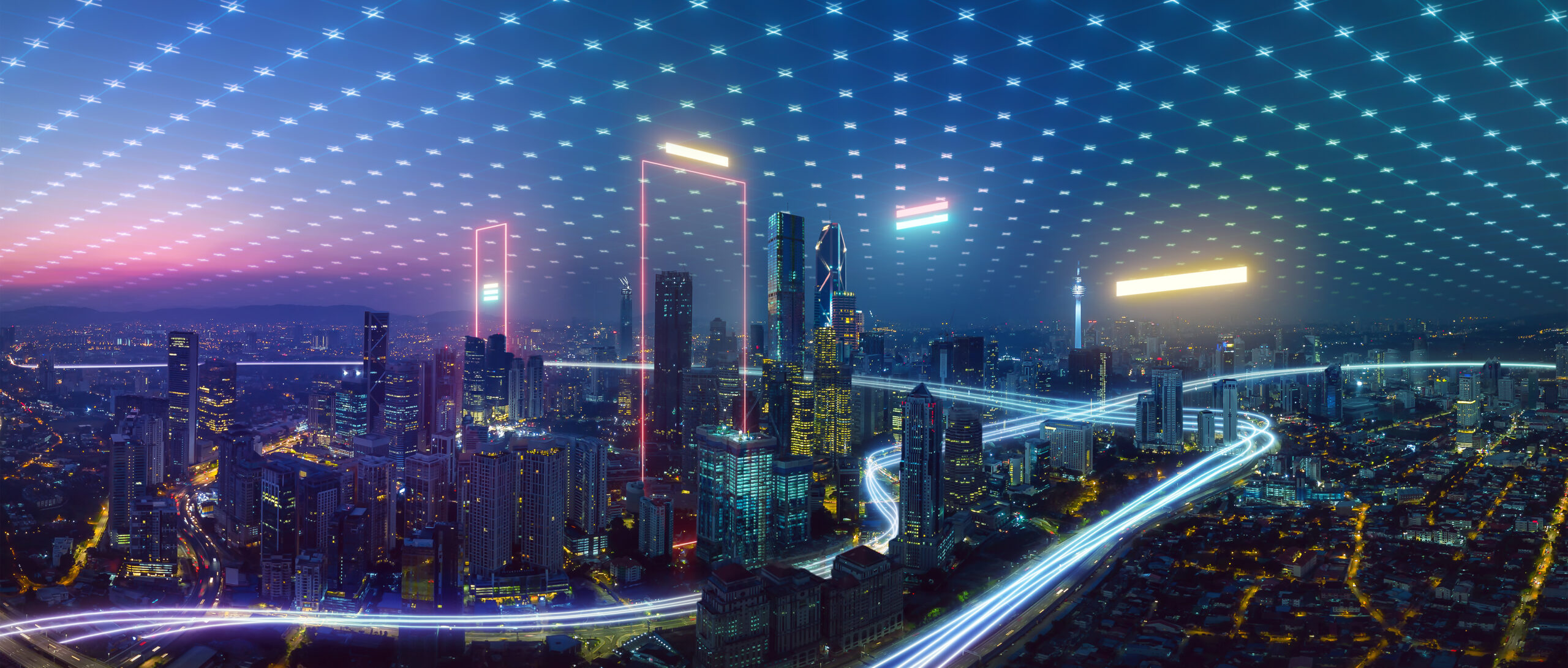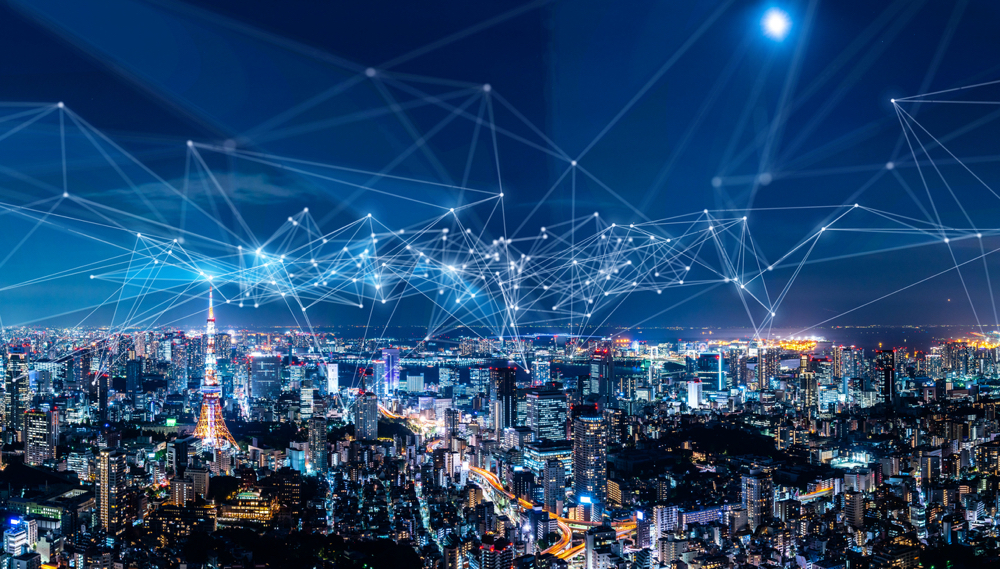Enhancing Urban Living through Technology
In recent years, the concept of smart cities has gained significant attention worldwide, promising to enhance urban living through the integration of advanced technologies. At the heart of this transformation is artificial intelligence (AI), which is driving a revolution in how cities operate, from traffic management to energy efficiency, public safety, and citizen engagement. By leveraging AI, cities are becoming more intelligent, connected, and sustainable, improving the quality of life for their inhabitants. In this blog, we’ll explore how AI is transforming urban living and what the future holds for smart cities around the globe.
The Rise of Smart Cities: An Overview
To begin with, smart cities are urban areas that use digital technology to enhance performance and well-being, reduce costs, and manage resources more efficiently. Essentially, they are built on the concept of interconnected systems that use data and communication technologies to improve public services and infrastructure. While many technologies contribute to the development of smart cities, AI is arguably the most transformative. Through its ability to process vast amounts of data and learn from patterns, AI enables cities to operate in a more efficient and sustainable manner.
For example, in a smart city, AI can optimize traffic flow, reduce energy consumption, and enhance public safety through real-time data analysis. As more cities adopt AI-driven technologies, they become better equipped to address the challenges of rapid urbanization, such as overcrowding, pollution, and resource scarcity. As a result, smart cities are paving the way for a more sustainable and connected future.

AI in Traffic Management: Easing Urban Congestion
One of the most significant applications of AI in smart cities is in traffic management. As urban populations continue to grow, traffic congestion has become a major issue for many cities around the world. Fortunately, AI is helping to ease this problem by optimizing traffic flow and reducing the time drivers spend on the road. By analyzing data from sensors, cameras, and GPS devices, AI algorithms can predict traffic patterns and adjust traffic signals accordingly to improve the flow of vehicles.
Additionally, AI can assist in rerouting traffic during accidents or road closures, ensuring that vehicles take the most efficient routes. In some cities, AI-powered traffic management systems have reduced congestion by up to 30%, saving time for commuters and reducing emissions. Furthermore, as autonomous vehicles become more prevalent, AI will play an even greater role in managing traffic flow, as these vehicles will communicate with one another and with city infrastructure to create a more seamless transportation system.
AI and Public Safety: Creating Safer Urban Environments
In addition to improving transportation, AI is also making cities safer. Through the use of AI-powered surveillance systems, cities can monitor public spaces in real-time, identifying potential threats and responding more quickly to emergencies. For instance, AI-driven facial recognition systems can identify individuals with criminal records or those on watchlists, allowing authorities to intervene before incidents escalate.
Moreover, AI is being used to predict crime patterns based on historical data, helping law enforcement agencies deploy resources more effectively. This predictive policing, while controversial in some cases, has been shown to reduce crime rates in certain cities by enabling a more proactive approach to law enforcement. As a result, AI is enhancing public safety by enabling cities to prevent crimes before they occur, rather than simply responding to them after the fact.
Beyond surveillance and crime prevention, AI is also being used in disaster management. For example, AI can predict natural disasters such as floods, earthquakes, and wildfires by analyzing environmental data. By providing early warnings, AI allows city officials to take preventive measures, such as evacuating residents or fortifying infrastructure, which can save lives and reduce damage.
AI in Energy Management: Towards Sustainable Urban Living
Another area where AI is having a profound impact on smart cities is energy management. As cities strive to reduce their carbon footprints, AI is being used to optimize energy consumption and promote the use of renewable resources. By analyzing data from smart grids, AI can predict energy demand and supply, allowing cities to allocate energy more efficiently. For instance, AI can adjust the energy consumption of streetlights, buildings, and public transportation systems based on real-time usage patterns, reducing energy waste and lowering costs.
In addition, AI is playing a key role in the transition to renewable energy sources. By predicting weather patterns and energy consumption, AI can optimize the integration of solar, wind, and other renewable energy sources into the grid. This not only reduces reliance on fossil fuels but also ensures a more stable and resilient energy supply for the city. As a result, AI is helping cities move toward a more sustainable future, where energy is used more efficiently, and environmental impacts are minimized.
AI and Citizen Engagement: Enhancing Public Services
While AI is transforming the infrastructure of smart cities, it is also enhancing the way citizens interact with public services. Through the use of AI-powered platforms, cities are able to provide more personalized and efficient services to their residents. For example, chatbots and virtual assistants powered by AI can handle routine citizen inquiries, such as providing information about public transportation schedules, waste collection, or local events. This not only reduces the workload for city employees but also ensures that residents receive faster and more accurate responses to their questions.
Moreover, AI is enabling cities to engage with citizens in new ways, such as through participatory budgeting and decision-making platforms. By analyzing feedback and data from citizens, AI can help city officials make more informed decisions about public policy and resource allocation. As a result, AI is not only improving the efficiency of public services but also fostering a more inclusive and participatory form of urban governance.
Challenges and Ethical Considerations
Despite the numerous benefits of AI in smart cities, there are several challenges and ethical considerations that must be addressed. One of the primary concerns is privacy. With the widespread use of AI-driven surveillance systems and data collection, there are concerns about how personal data is collected, stored, and used. In some cases, AI-powered systems have been criticized for being overly intrusive, raising questions about the balance between security and privacy.
Additionally, there are concerns about the potential for bias in AI algorithms. If not properly managed, AI systems can perpetuate existing inequalities, particularly when it comes to law enforcement and public safety. For example, AI-driven facial recognition systems have been found to have higher error rates when identifying individuals of certain ethnic backgrounds, leading to concerns about discrimination and unfair targeting.
To address these challenges, it is essential that cities implement robust data protection policies and ensure transparency in how AI is used. Furthermore, AI systems must be regularly audited and updated to ensure that they are operating fairly and without bias. By taking these steps, cities can ensure that AI is used responsibly and ethically, while still reaping the benefits of smarter urban living.

The Future of AI in Smart Cities
Looking ahead, the future of AI in smart cities is incredibly promising. As technology continues to advance, we can expect even more innovative applications of AI in urban environments. For instance, AI will likely play a key role in the development of autonomous transportation systems, such as self-driving cars, drones, and even flying taxis. These technologies, combined with AI-driven traffic management systems, could revolutionize urban transportation, making cities more accessible and reducing the environmental impact of commuting.
Moreover, AI will continue to drive advancements in energy management, waste reduction, and public safety, creating more sustainable and resilient cities. As smart cities become more interconnected, AI will enable cities to operate as cohesive ecosystems, where every system — from transportation to energy to public services — is optimized and responsive to real-time data.
In conclusion, AI is not just a technological innovation; it is a tool that has the potential to reshape the very fabric of urban life. By embracing AI, cities can become more efficient, sustainable, and responsive to the needs of their residents. However, it is essential that these technologies are implemented thoughtfully, with a focus on ethical considerations and inclusivity. Ultimately, AI in smart cities represents a new frontier in urban living, where technology and human intelligence work together to create better environments for everyone.

Conclusion
In summary, AI is revolutionizing the way cities function, offering solutions to challenges such as traffic congestion, energy consumption, public safety, and citizen engagement. As cities around the world continue to adopt AI-driven technologies, the future of urban living is becoming smarter, more connected, and more sustainable. While there are challenges and ethical concerns that need to be addressed, the potential benefits of AI in smart cities are undeniable. By leveraging AI responsibly, cities can unlock new opportunities for enhancing the quality of life for their residents and ensuring a brighter, more sustainable future for all.


Pingback: AI in Entertainment: the best social professional art -